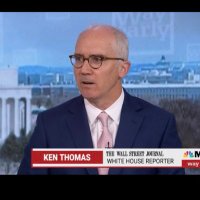
Oyin Adedoyin
@oyinadedoyin5
Personal Finance Reporter @wsj
ID: 1585633955088576513
https://www.wsj.com/news/author/oyin-adedoyin 27-10-2022 14:06:23
235 Tweet
793 Followers
704 Following

FAFSA access will be limited to a small group of students in October to make sure technical glitches have been resolved; most families won't get to fill it out until late fall wsj.com/us-news/educat… via The Wall Street Journal w/ Oyin Adedoyin

Here's a radical idea: Retire often, not early. Oyin Adedoyin talks to folks borrowing years of freedom from their future selves to enjoy periods of retirement while young -- even if it means working longer in the end. wsj.com/personal-finan…

Listen 🎧: Workers are opting to retire often, not early, by taking “mini-retirements” throughout their careers. The Wall Street Journal’s Oyin Adedoyin joins @JRWhalen to discuss how people are borrowing time and money from their later selves to enjoy life now. link.chtbl.com/WSJYourMoneyBr…


Fidelity put stricter guardrails on the deposits customers make, hitting back against a check-fraud scheme that targeted the investing giant earlier this month wsj.com/personal-finan… via The Wall Street Journal

The full moon rises through the ‘D’ in Baltimore’s Domino Sugar sign Thursday 📸 The Baltimore Banner | 10.17.24 🌕


The potential issue with signatures in Nevada reminds me of this great story from Oyin Adedoyin "Our signatures are irrelevant and increasingly illegible, now that fewer schools teach cursive writing and penmanship." wsj.com/personal-finan…

The word “null,” used by computer scientists to mean “no value,” has created long-running challenges for people whose last name is Null. Via Oyin Adedoyin wsj.com/lifestyle/null…

"Hoare probably wasn’t thinking about people with the 4,910th most common surname. He later called it his billion-dollar mistake ..." Oyin Adedoyin on the daily struggles of people named Null wsj.com/lifestyle/null…





A story that makes no cents. Oyin Adedoyin wsj.com/finance/penny-…

The penny has been around nearly as long as America, but it will soon start to fade from circulation Oyin Adedoyin wsj.com/us-news/penny-…

Also don't miss this fantastic exclusive from Oyin Adedoyin about the death knell for the U.S. penny.. wsj.com/finance/penny-…

"A penny saved was a penny earned. A penny bought your thoughts. A penny was pretty. A penny was pinched. A penny might even be hiding in your loafer." An ode to the penny by Oyin Adedoyin and Ken Thomas as it faces the end. wsj.com/us-news/penny-…

Listen 🎧: How much do you know about personal finance? Odds are: not as much as some high schoolers. Host Oyin Adedoyin takes an inside look at the WSJ’s recent money quizzes and hears from one of the high schoolers who aced the real thing. on.wsj.com/3MyZxna


